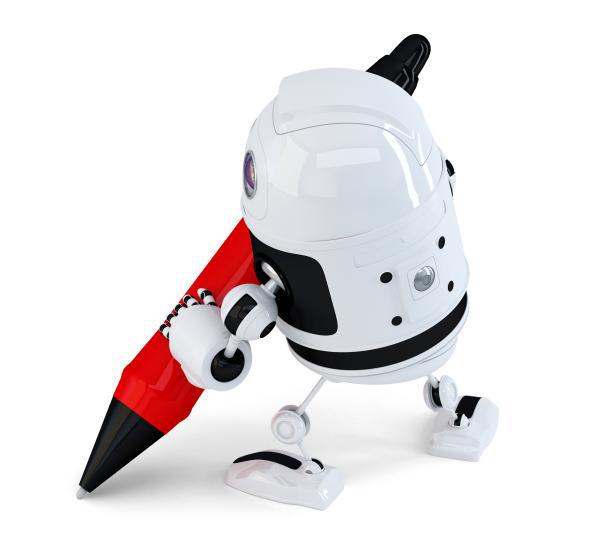Greetings, Future Tensers,
There are plenty of reasons to be both fascinated by and skeptical of A.I.-generated “creative” works. This week, Dartmouth College’s Dan Rockmore and Allen Riddell further affirmed that ambivalence with their article on a competition they ran for software-authored artworks. As Rockmore and Riddell note, “A Shakespearean sonnet is basically a high-level algorithm,” thanks to the form’s standardized structure. It’s no surprise, then, that an A.I. can create something that looks a great deal like Shakespearean verse, and some of the entries in the competition managed just that. But the genius comes from a poet’s ability to work within limitations—not in the mere adherence to convention.
Above all else, Rockmore and Riddell write, A.I. authors still struggles to produce anything that resembles a complete narrative. In the past, that’s meant that humans have frequently had to intervene if they want to make it seem like their A.I. “artists” are saying anything remotely meaningful. Accordingly, we’re unlikely to see A.I. independently produce anything with the kind of world-building “audacity” that Konstantin Kakaes identifies in J.R.R. Tolkien’s Lord of the Rings, a mythopoeic complexity that underscores and enables the series’ “intimate, original grandeur.”
For the time being, A.I. authors may have found their true calling in writing about baseball, if only because baseball is a machine for making stories from data. Examining the Associated Press’ new attempt to automate minor league game recaps, Will Oremus writes that the results resemble “what you’d expect from a reasonably competent human reporter, minus any telltale signs of abject boredom, self-loathing, or stifled literary ambition.” Ultimately, though, computers are still better suited for repetitive tasks such as lab work—where they can, Stephanie Wykstra suggests, help combat the reproducibility crisis in the sciences—than they ever will be at more creative endeavors.
Here are some of the other stories that we read while puzzling over the weight of kilogram:
- Health: Investigating a blog that chronicles Victorian attitudes toward illness, Rebecca Onion finds that our contemporary anxieties about technology and the body have a long history.
- Criminology: Some law enforcement agencies are looking to track and target individuals with particular tattoos. Yael Grauer explores the ways such automated policing might go wrong.
- Cybersecurity: An Israeli program is training high-school students how to defend against digital threats.
- Genetics: Home DNA tests may be a booming industry, but most of what they tell you about your ethnic makeup is nonsense.
- What concerted steps should Canada, Mexico, and the United States take to ensure that North America will become the world’s leading energy power for generations? Future Tense and the Wilson Center’s Canada Institute invite you to join them in Washington, D.C., at noon on Tuesday, July 26, for a conversation on what it will take for North America to fulfill its energy potential. For more information and to RSVP, visit the New America website, where the event will also be streamed live.
Jacob Brogan
for Future Tense
